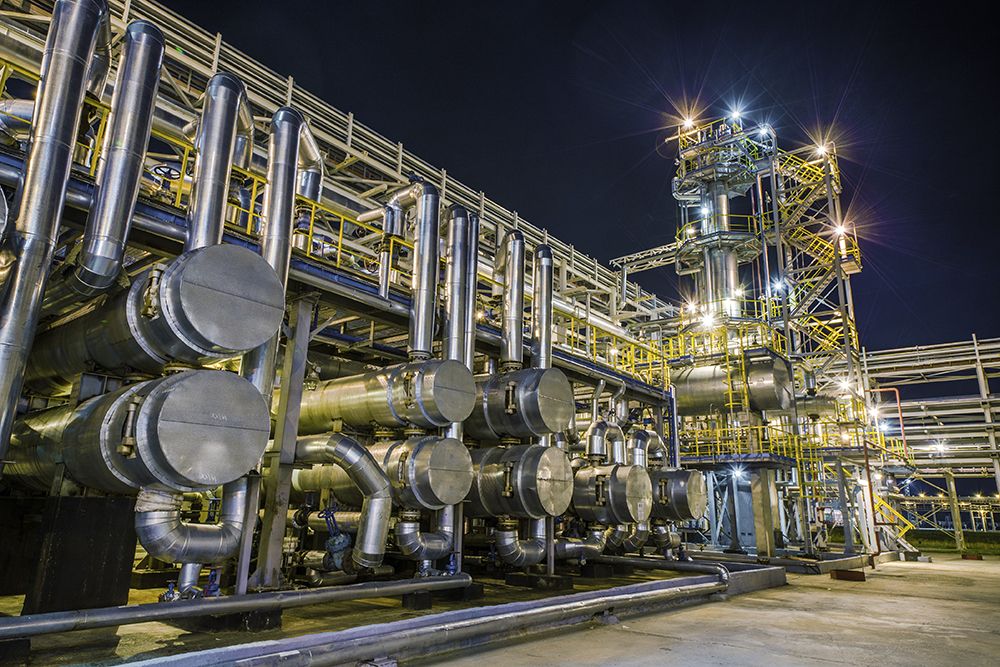ASME B31.3- Latest Process Piping Changes


B31.3 is one of American Society of Mechanical Engineering (ASME)’s most requested codes. It serves as a companion to ASME’s B31.1 Code on Power Piping as well as to the other codes in ASME’s B31 series. Together, they remain essential references for anyone engaged with piping.
Careful application of these B31 codes will help users to comply with applicable regulations within their jurisdictions, while achieving the operational, cost and safety benefits to be gained from the many industry best-practices detailed within these volumes.
ASME B31.3 - Process Piping
Process Piping is the piping that convey fluids under pressure or vacuum, refers to the piping systems (including pipes, tubing, fittings, flanges, valves, and pipe supports).
This Code contains rules for piping typically found in petroleum refineries; chemical, pharmaceutical, textile, paper, semiconductor, and cryogenic plants; and related processing plants and terminals.
This standard contains rules for piping typically found in the above-mentioned plants and it prescribes requirements for materials and components, design, fabrication, assembly, erection, examination, inspection, and testing of piping.
This Code applies to piping for all fluids including:
- raw, intermediate and finished chemicals,
- petroleum products,
- gas - steam - air and water,
- fluidized solids,
- refrigerants,
- cryogenic fluids
- Also included is piping which interconnects pieces or stages within a packaged equipment assembly
Several changes has been made to the latest edition of the ASME B31.3-2016 – Process Piping code, including:
- Severe Cyclic Conditions
“Conditions applying to specific piping components or joints for which the owner or the designer determines that construction to better resist fatigue loading is warranted”. This revision includes guidance on designing piping under these conditions.
- MPa Allowable Stresses
Previously included in ASME B31.3 as information only, either MPa (megapascal) or ksi (kilopound per square inch) units may now be used for compliance with the Code.
- Expansion Joints
A new section has been added for expansion joints, as the standard now specifies the design of metallic bellows expansion joints, slip type expansion joints, and others. Expansion joints are also addressed in different pipe and leakage guidelines throughout the document.
- Flange Joint Assembly
The revision calls for assembly requirements for bolted flanged joints and flanged joint assembly qualifications to be considered in the engineering design.
- Ultrasonic Examination Acceptance Criteria
ASME B31.3-2016 – Process Piping specifies a transfer method for conducting the ultrasonic examination of welds and other materials in the piping system.
- Category M Fluid Service Examination
The definition for Category M Fluid Service has been revised.
- Leak Testing of Instrument Connections
Threaded joints and tubing joints now do not need to be leak tested in accordance with the ASME B31.3 leak test.
- Leak Testing of Vacuum Systems
Vacuum leak testing is included as an alternative to the internal pressure method.
- Leak Testing of Insulated Systems
The Code now allows some joints to be covered by insulation during leak testing.
- Leak Testing of Assembled Piping
Pipe and related components and assemblies can be tested either separately or as assembled piping.
Read more at the ANSI Blog: ASME B31.3-2016 – Process Piping Changes https://blog.ansi.org/?p=7025
ASME B31.3 Piping, Construction, Inspection, Maintenance, Repair & Integrity Assessment & Re-Rating (API 579) is a 3-day training course held from 26 – 28 November 2018 (Kuala Lumpur). This course provides a comprehensive coverage of the examination requirements Body of Knowledge along with ASME B31.3 Code requirements. It includes descriptions of important new requirements of ASME B31.3, including the philosophy behind the changes. Further, the course has been enriched with the latest requirements of the API 570. For more information, please contact us at info@opuskinetic.com.
Interested to read other related articles? Check out: How Leadership In Process Safety Is The Key to Successful PSM Implementation
Opus Kinetic believes that people are why organisations are successful, and giving people the knowledge to perform well at their job is integral for success. We pride ourselves as the premier provider of knowledge, offering acclaimed in-house trainings, and many others professional training courses spanning from various industries. Our training courses are well researched and updated with the latest industry trends. For more information on our professional training programs, visit us at http://www.opuskinetic.com/training.

